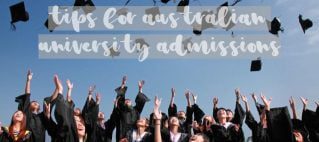How to get PR in Australia
Ways in Which You Can Become an Australian Permanent Resident
There are several factors that can make you look for a permanent residency in another country. One of the main reasons most people seek permanent residency in other countries are:
- education,
- employment
- good working conditions
- good living conditions
in a destination country. Australia is among the top countries receiving numerous foreign citizens who either go for education or employment purposes. Since Australia is liked by many people worldwide, how to get pr in Australia maybe the riddling question in your mind. To get a PR in Australia, you need to follow a well laid down procedure to obtain the privilege of becoming a resident. On any given time you may possess just one visa, but over the time as your circumstances may change you may apply for a different visa.
As a migrant who is given permanent resident visa by the Australian government, you can live in Australia for an indefinite period, however, to obtain permanent residency you need to follow some steps. There are 2 main pathways how people get PR in Australia, through:
- skilled migration, and
- family migration.
How to get PR in Australia through General Skilled Migration
The winners are those people who possess skills that are in demand in Australia. If your occupation is listed on a relevant list, you’ve been working in your occupation for several years and additionally, your education is aligned with your profession, you might be eligible for a skilled independent visa (subclass 189). There are some points based criteria (skills, education, language, age, etc). If you’ll be able to “collect” enough points you may lodge EOI (Expression of Interest) to the Department of Immigration and if they may invite you to lodge for a visa. At this stage, you’ll have to provide all the relevant documentation.
If your occupation is on CSOL List or you are unable to collect enough points for a skilled independent visa, there could be another option for you. Skilled Nominated Visa (permanent residency visa subclass 190) is another option for those less fortunate with occupation from the list. Some states are nominating certain professionals, but in return, they do expect you’ll be living in that particular state at least for a few years.
If you are not able to collect enough points for a skilled visa, you may consider applying for a temporary visa which in return after some time might give you some additional points. For example: getting a degree in Australia may give you few more points, working for few years in Australia in your dedicated occupation may give you few additional points, polishing your English and getting better results on a language test will give you few more points – opportunities seems to be endless. Keep in mind the situation of every person is different and it is in your best interest to seek migration agent’s advice.
How to get PR in Australia through an employer-sponsored visa
Employer-sponsored visas fall under the “skilled migration” category as are also based on your work experience. If you are lucky enough to be able to find an employer who’d be also willing to sponsor you for a visa, you might be on the right path to obtain your permanent residency. The most common way to get sponsored by an employer is through a temporary 482 visa, which after 3 years might be converted to PR (more about converting TSS to PR here). There are other temporary visas that give you work right (student visa – part-time only, working holiday, student graduate, and others). Quite often once you’ll prove to your employer that you are trustworthy professional they’ll be willing to assist you with your PR application through TSS visa or straight away to ENS os RSMS.
How to get PR in Australia through a business visa
There are certain types of visas available for those with a really deep pocket and proven business experience.
How to get PR in Australia through family migration
When you have a partner in Australia you may be eligible to apply for a partner visa which will allow you to live in Australia on a permanent basis. Keep in mind this is 2 stage visa – firstly is granted for 2 years, and after that period of time if your relationship is still continuing you’ll be granted a permanent visa. Other family-related visas are for parents of Australians and / or children and the last remaining relives.
When you will be granted a permanent residency visa, you can live in Australia as long as you wish and after a few years you may have the privilege to apply for Australian citizenship.
Remember that the situation of every person is different and there could be various ways that can lead to permanent residency. Which one would be best for you? Book an appointment with our migration agent and we’ll find out the answer for you.
You may also give us a call to discuss your options.




Hi i want to know more about australia migration
You’re in a good companion then!
Hi there,
We are a family of 4 with NZ passports. We have lived here since 2007 but my husband & I have the RR class BB subclass 155 visa’s – just been granted as we were here before 2001. Our daughter is 16 & our son is 14. Our daughter turned 16 after we obtained the RR visa’s. We have to wait a year before we can apply for citizenship. Is she classed as being an Australian resident as she is under 18 & can she be included under us as child when we do apply for Citizenship? Or does she have to apply to be a resident in her own right?
If your kids have been born in Australia and were living here all the time they become Australian Citizens by operation of law on their 10th birthday.
Let us know if you need an assistance in obtaining proof of their Australian citizenship.